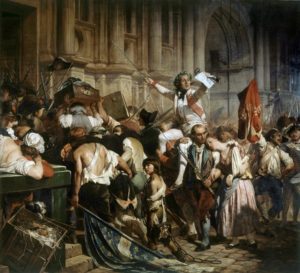
Post submitted by Akshita, one of our Student Experience Ambassadors
Bastille Day, celebrated annually on July 14th, commemorates the Storming of the Bastille in 1789, a pivotal event in the French Revolution. While commonly referred to as Bastille Day in English-speaking countries, it is known in France as Fête Nationale Française (French National Celebration) or simply le 14 Juillet (the 14th of July).
Originally built as a medieval fortress to protect Paris’s eastern entrance, the Bastille later became a state prison, often housing political prisoners. By the late 18th century, it was scarcely used and slated for demolition. Despite its diminished role, the Bastille symbolized the tyranny of the French monarchy amidst an economic crisis marked by famine and unemployment.
On 14 July 1789, revolutionaries stormed the Bastille to seize the arms and ammunition stored there. After a fierce confrontation, they overpowered the guards and freed the seven prisoners held inside. This event marked the beginning of the French Revolution and the end of the ancien régime.

Today, Bastille Day is celebrated with speeches, military parades, fireworks and public revelry. Cries of “Vive le 14 Juillet!” (“Long live the 14th of July!”) resonate throughout the celebrations. Former French colonies, such as French Polynesia, have adapted the holiday, incorporating their own cultural traditions with singing, dancing and drumming competitions throughout July.
In France, the day is highlighted by the largest military parade in Europe, held on the Champs-Élysées in Paris, attended by the President of France. Bastille Day is imbued with patriotic spirit, featuring cultural celebrations, military parades and dazzling fireworks. It’s a time to indulge in traditional French cuisine and enjoy concerts of French music, celebrating the enduring spirit of liberté, égalité, fraternité.
